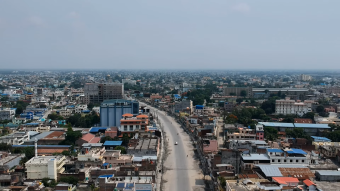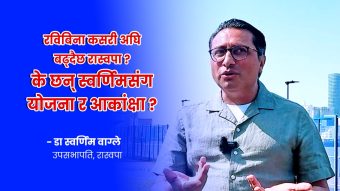सोमबार, ५ जनवरी, २०२६
Unveiling the Shadows of Silence and Embracing Healing



नेपाली लिङ्क
अगस्ट ९, २०२३

Swopnil Devkota
It is an undeniable truth that an alarming number of women have encountered the harrowing specter of sexual harassment at some juncture in their lives. This unsettling cycle perpetuates itself, an insidious undercurrent that persists through the annals of time. While today’s era witnesses a greater visibility of these distressing accounts, an ominous shroud of silence still envelops countless untold stories, their voices stifled in a relentless spiral of secrecy.
Surprisingly, the victims themselves are faced with a huge burden of self-doubt, frequently wrestling with the painful belief that they, in some way, played a role in inviting such vile transgressions. However, it is critical to state unequivocally that no rationale or scenario can ever justify these heinous deeds. The responsibility lies squarely on the shoulders of the guilty party, untainted by any shades of blame cast upon the victim.
Our society, unfortunately, remains complicit in fostering an environment of silence, where the whispered atrocities of sexual harassment find a breeding ground. But one must pause to ponder, who truly benefits from this veil of silence? Have the victims, who bear the weight of these horrors, ever tasted the sweet nectar of justice as a result of this collective hushing?
Psychologically speaking, the effects of such traumas are severe, frequently resulting in a domino effect of mental distress and disorders that ripple throughout the victims’ life. Many people who experience such interactions later find themselves trapped in a maze of emotional isolation and unable to express the depths of their sorrow.
People tend to be more closed off and are unable to express their real feeling after suffering from such incident. The thing to remember is, there are various situations and scenarios where people face harassments. We certainly have heard the cases of harassment in public transportations and roads. Wait! That’s not just it, the supposedly secure confines of workplaces, where you must have the security for doing the job, that very place has been the scene of these incidents for some. The very sanctuaries that should serve as beacons of enlightenment, schools and colleges, have, heartbreakingly, been the breeding ground for the unspeakable suffering of some.
Even seemingly innocent actions like travelling for work do not protect one from the clutches of this vile plague. Surprisingly, even friendship circles, where trust ought to be the utmost value, become tarnished by the scars of betrayal when friends become the perpetrators, permanently changing the victims’ perception of safety.
The worst blow, however, comes when one’s own house, the sacred space of their family or relatives, is transformed into a theatre of unspeakable evils. Unbelievably, those who claim to be providing security transform into heinous criminals, trapping their victims in a web of unfathomable suffering and vulnerability.
One might be compelled to inquire: Where, then, is safety to be found? In the course of the counseling journey I have provided, the poignant narratives of survivors paint a chilling portrait of their agonizing ordeals have left me shocked and full of questions. Such tales, while disheartening, serve as a sobering reminder that the darkness of these incidents casts a long and relentless shadow.
A close relative once shared a troubling habit from her past at a gathering: carrying a big needle on the bus as a rudimentary form of self-defense against prospective predators. The fact that such a survival tactic was necessary speaks volumes about the enduring presence of this menace. It prompts us to question: when will this ceaseless cycle ever come to an end?
Equally significant is our tendency to pass facile judgments upon victims’ actions in the aftermath of these traumatic experiences. Often, we hear assertions like “I would have done this” or “I would have said that” in response to survivors’ stories! I heard from my clients when they said they froze and couldn’t utter a single word completely blank about what on earth was going on! However, it is important to recognize that these circumstances are hardly foreseeable or logical. Some of them couldn’t say no when they wanted to because of the shock.
Do we ever think if it would be easy to confront so easily. Some of them cannot do so and that is okay. Some do confront and that is okay as well. How can we possibly fathom the crushing weight that survivors bear? Imagine glimpsing the very relative who subjected them to torment, nonchalantly relishing life’s joys during family gatherings. Contemplate the heartache of witnessing a once-trusted friend bask in marital bliss, while the survivor is locked in a perpetual struggle with their inner demons. Envision the agonizing paradox of being both the giver and receiver of help, as those who once offered support become recipients themselves. The maelstrom of emotions that accompanies such scenarios is an indescribable tempest of pain.
Our compass must be empathy, not judgement. Instead of being ready to judge, one should approach the survivor accounts with an open mind and a willingness to understand, as opposed to a readiness to criticize. Many survivors still struggle with unresolved trauma, their lives forever marked by the invisible scars from these horrible events on their life. The act of shrouding these stories in secrecy only perpetuates a cycle of victimization, a breeding ground for further suffering.
One striking reality stands out in the midst of this complex tapestry of suffering and resiliency: asking for help and counselling is an act of empowerment, a glimmer of light in the midst of the storm. It is critical to understand that the trauma caused by sexual harassment need not be carried alone in its shadows. The journey towards healing is frequently distinguished by brave moves towards regaining one’s well-being and the embracing of professional support. It is a sign of strength, not weakness, to admit when you need help when you’re vulnerable in a world full of complications.
Reaching out for assistance in these circumstances is an affirmative step towards breaking free from the chains of silence and pain, just as sunlight pierces through the thickest clouds. Let’s break down oppressive standards, break down the walls of secrecy, and create a space where people’s voices are heard, trauma is acknowledged, and healing is welcomed. Survivors pave the way for a future where the echoes of resilience resonate far louder than the echoes of silence.
Thus, the necessity becomes clear: We must unite in our determination to end the stifling silence that surrounds the subject of sexual harassment. The cycle of impunity must be broken in order for justice to be completely realized, and this requires holding those responsible for their crimes accountable. The moment has come to establish a setting where victims feel free to speak up without fear, where each voice reverberates with the hope of acceptance, compassion, and most importantly, a common determination to put a stop to this never-ending cycle of misery.
–Swopnil Devkota (Psychological Counsellor)
सम्बन्धित सामग्रीहरू
हाम्रो सिफारिस
ताजा अपडेट्स
ट्रेन्डिङ











